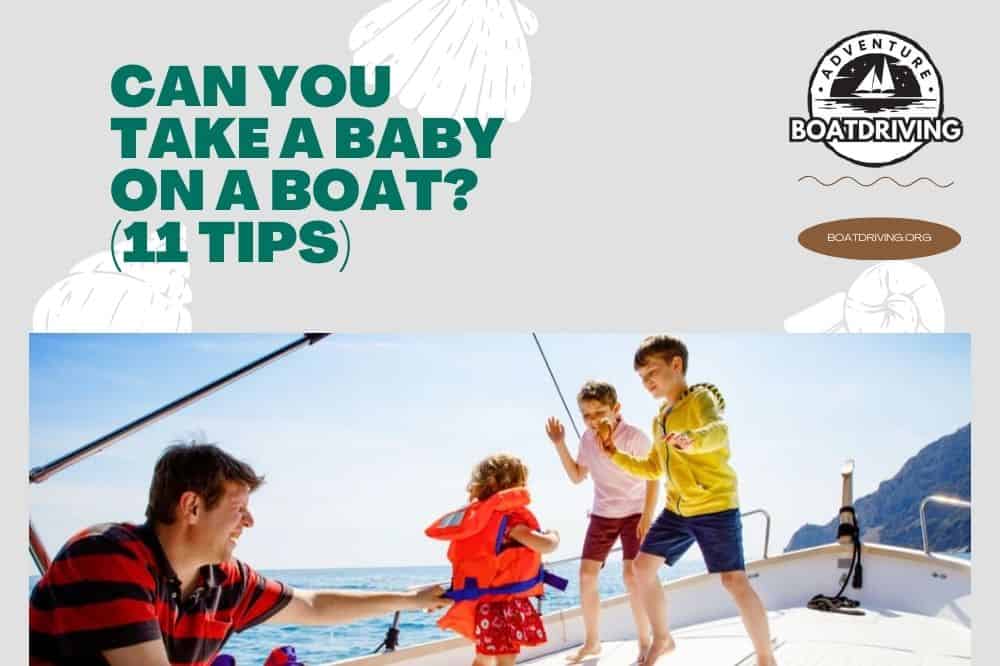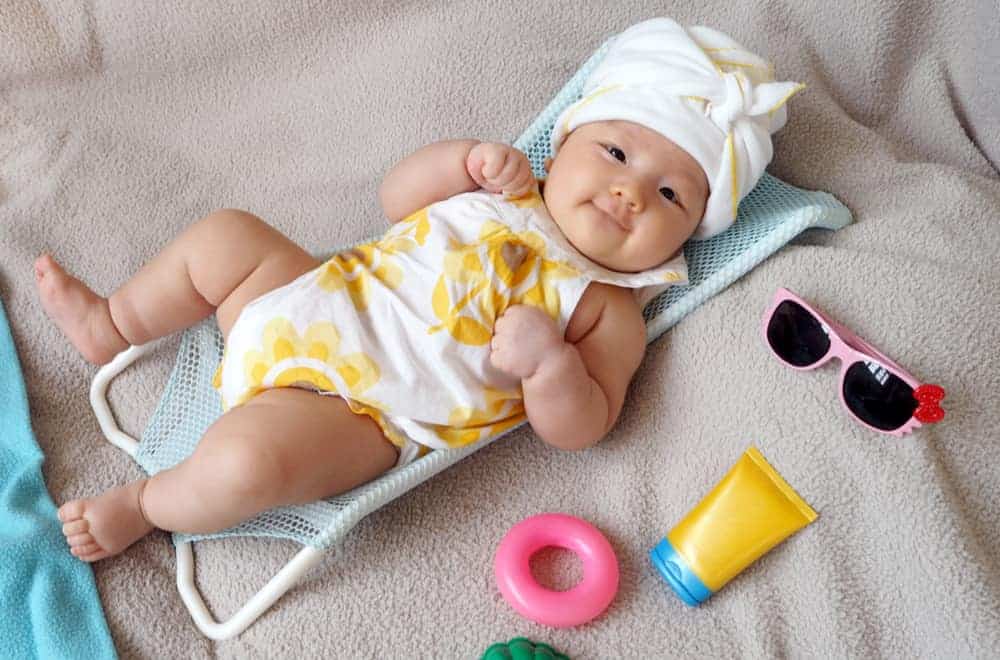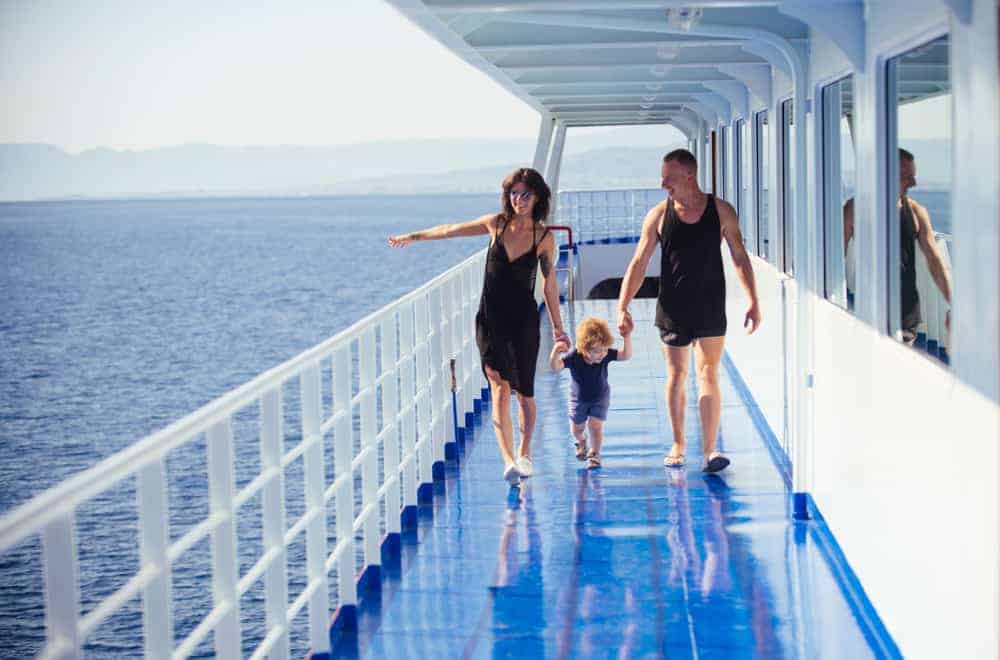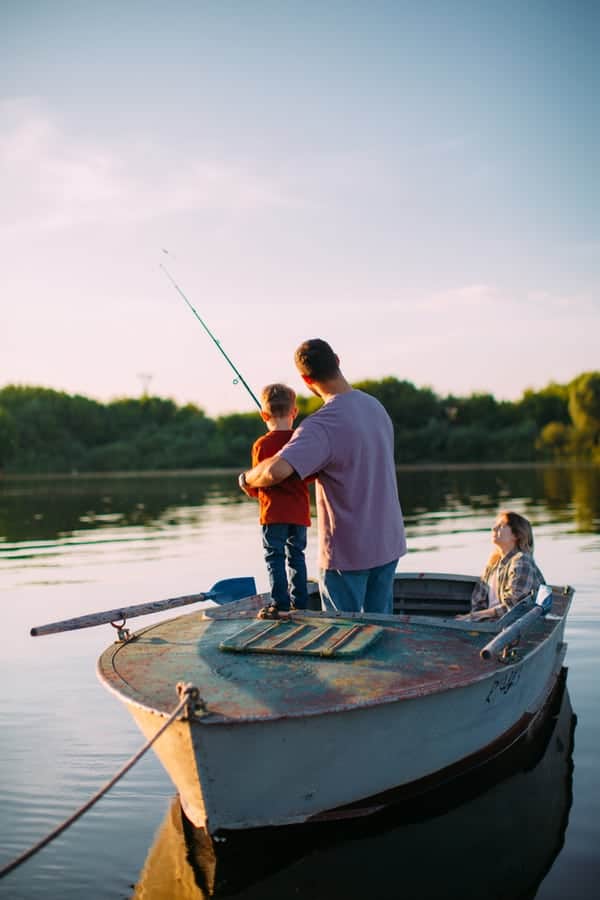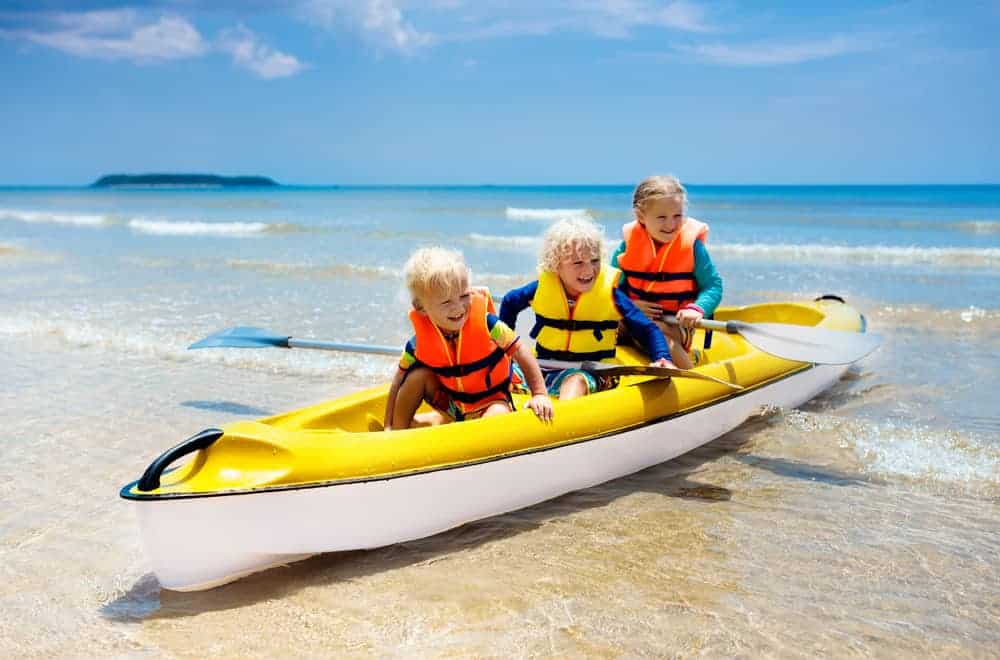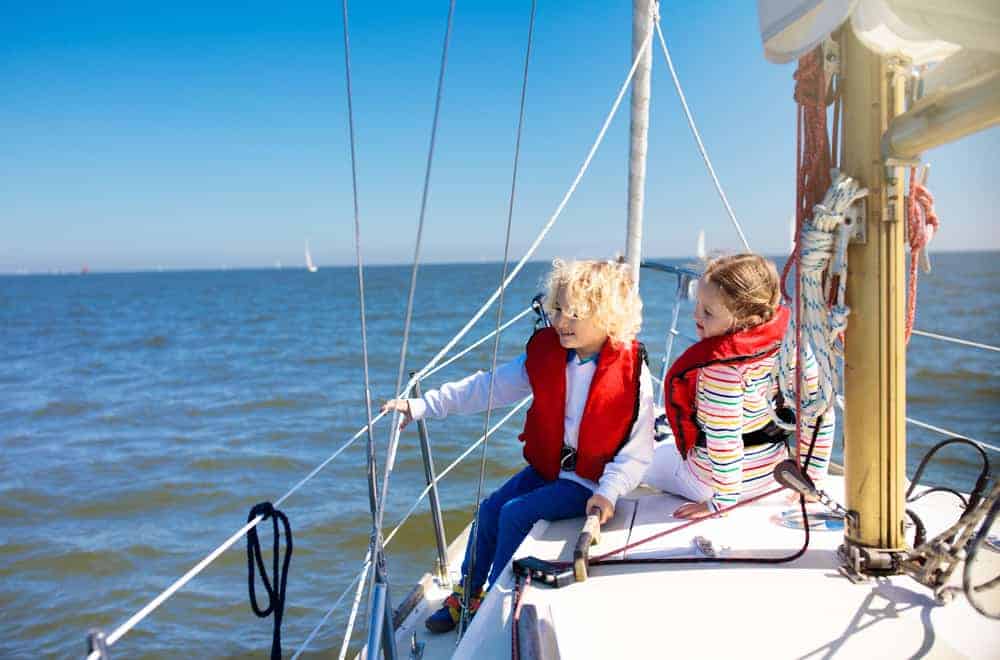Are you planning on a short trip with your baby? Or do you live on a boat with your infant? Whatever the case is, you must educate yourself regarding tips, dos and don’ts, and disciplines that should be followed while handling a baby on a boat.
For instance, how old should the baby be for them to be legally allowed on a boat? What are some safety tips to follow? To your rescue, we’ve covered it all. Let’s get started!
Table of Contents
Can You Take a Newborn on a Boat?
U.S. Coast Guard’s Office of Boating Safety recommends that your baby should at least weigh 18 pounds and wear a Personal Floating Device (PFD) comfortably before you can take them on a boat.
Therefore, taking a newborn, 2-month-old, or a 3-month-old baby boating is out of the question as babies don’t reach 18 pounds that early on.
The average weight of male babies is 18 lbs at around 7 months, and female babies reach 18 lbs at around 8 months. If, after 4 months, your baby is over 18 lbs, it is safe for you to take them for their first boat ride as long as you follow good safety practices.
Can You Take a Baby on a Boat?
While it is not recommended to take newborns on a boat, one can definitely bring a baby on the boat as long as they are wearing a PFD snug and the vessel is anchored or moving slowly with utmost safety protocols in place.
U.S. Coast Guards recommends type II PFD for infants. This PFD type is designed to have extra support around the neck to assist the baby’s face to be facing upwards and kept out of the water. Ensure that you only use an expert-recommended PFD for your baby.
Type II PFDs are intended to be used on calmer waters and are less bulky and comfortable for your babies. Infant PFDs are designed to accommodate the weight range of 20 to 30 lbs and the chest size range of 16 to 22 inches.
11 Safety Tips to Take a Baby on a Boat
1. Choose calm weather and water:
Once you’ve made sure that you comply with all the federal and state rules and regulations, read the radar and weather forecasts and choose calm hours in the day when the water is peaceful and beautiful. You would definitely not want to deal with vicious weather with your child on board.
It would be best if you could plan your trip early morning as the sun is mild during these hours and the water is relatively calmer. In case of any prior notice of bad weather, reschedule your plan if possible or shorten your trip.
2. Bring an infant life jacket along:
While the age can vary in different states, the Federal law requires children under the age of 13 to wear life jackets when in recreational marine vessels. Despite the law, it is your duty always to bring along an infant life jacket when your baby has a marine trip on the schedule.
You should not only use the life jacket while onboard but also while boarding and deboarding the vessel.
Some people prefer passing the baby to someone already onboard for ease. While others safely carry the baby while boarding and deboarding the vessels. In either case, make sure your baby is wearing a PFD.
3. Designate an area for your baby:
Another important tip is to designate a safe area for your baby. Choose a shady place and get rid of all sharp and hazardous objects around. Fill the area with waterproof toys and let your baby enjoy their playtime on the boat.
This tip is also immensely useful for the person monitoring the baby, as they have to only focus on a single area and not run around the entire deck to monitor the baby.
4. Don’t be frugal when it comes to packing:
As a parent or a guardian, you should have already known by now that when it comes to baby items – the more, the better!
Pack extra waterproof diapers, warm clothes, snacks, fruits, sunscreen, pacifiers, and baby formula; in short, it is best to pack every baby item in extras when you’re onboard a boat with a baby.
5. Figure out a naptime schedule:
Maybe it’s the rocking motion of marine vessels; we’ve heard many instances of babies sleeping peacefully in boats. In fact, many say that babies slept quicker in the boat than they would’ve in their homes.
You can bring along a portable baby boat seat or a baby crib for boats for your baby to comfortably lie on. Or you can hold them on your lap if your baby is too small. Even if your baby is sleeping, remember that you have to keep an eye out for any discomfort or dangers towards them.
6. Say no to car seats:
Many believe that buckling a baby to a car seat while on the boat is a safe option. However, that’s not the case. If, in any case, the seat falls overboard, it will drown the baby along with it regardless of the fact that your baby was wearing a PFD.
Also, whenever waves and wakes hit the boat, the jolting motion might be uncomfortable for babies while being strapped in the car seat. So, you must make sure that you’re always holding your infant with you and providing enough support to their neck to protect them from impacts.
7. Create shade for your babies:
Sun on marine vessels can be brutal during the summer. According to FDA, sunscreen shouldn’t be used on infants under six months as their skin is too sensitive to handle sunscreens.
This is the general rule of thumb. Nevertheless, if your sunscreen company has mentioned in the label some other safe-age, make sure you follow their specific directions.
While babies above the recommended age should be well-lathered in a good SPF protective sunscreen, months-old babies should be provided with enough shade to protect themselves from sun damage.
On top of sunscreen, dress your babies in full-sleeved clothes and a hat for that extra protection. The use of a bimini top is often recommended to create shade for your babies.
8. Keep your babies warm:
While boating in the cold water, light water spray on your bodies might not feel like a big deal. However, on the other hand, babies are prone to getting hypothermic as they have an underdeveloped mechanism of regulating body temperature.
Therefore, pack warm clothes and blankets for your baby and make sure you keep them warm on the boat.
Also, learn hypothermia symptoms and first aid techniques beforehand. On a boat, emergencies will often be severe due to a lack of resources. So, it is always best to prepare yourself for the worst-case scenario.
9. Be vigilant at all times:
The next tip is that while the baby is on board, always be on the lookout for big waves and wakes. The jolting motion might discomfort or shock your baby. So, in case of such a situation, make sure you carry your baby tightly and provide support to their neck.
10. No alcohol and partying while a baby is on the boat:
This is a pretty serious rule. Sailing can be a pretty lethargic task for even adults, especially those who suffer from seasickness. On top of that, if you’re on the boat drinking alcohol, you might not even be able to take care of yourself, let alone the baby.
You must ensure that alcohol isn’t allowed with babies on board the boat. Make sure that everyone is hydrated and healthy.
Breastfeeding moms should especially keep themselves well hydrated as their babies might require constant hydration given how immensely dehydrating a hot sunny day can be.
11. The more the babysitters, the better:
Having a baby on board means being extra attentive every second of your trip. For a single person to take care of the baby on board can be daunting. Especially if your baby is a toddler, monitoring them while they are awake is like a FULL-TIME job!
And holding an infant the entire time you’re on the boat will suck the fun out of you. So, it would be best if you have someone else to share the burden with and take shifts holding or monitoring the baby.
Therefore, if you’ve any enthusiastic friend or family member willing to volunteer as a babysitter, squeeze them in the trip. Trust us; you’ll feel grateful later!
Summary
In a nutshell, yes, you can take your baby on a boat as long as they are of appropriate weight and age. However, handling a baby on a boat is a joyous yet daunting task.
Especially if you have a mischievous toddler, you definitely have to be extra attentive. We hope this post provided you with the information you were seeking for. Let us know if there are any queries. Until then, happy boating!
